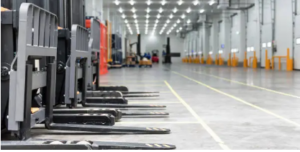Temporary cold storage Adelaide warehouses are indispensable in keeping temperature-sensitive products fresh and safe and are relied upon heavily by both food and pharmaceutical industries.
 Home users typically opt for warm or hot data storage solutions such as hard drives or instant-access cloud services, whereas businesses needing long-term archive storage but don’t wish to pay more for immediate access may choose cold storage instead.
Home users typically opt for warm or hot data storage solutions such as hard drives or instant-access cloud services, whereas businesses needing long-term archive storage but don’t wish to pay more for immediate access may choose cold storage instead.
- Keep Your Inventory Fresh
Operating a temporary cold storage Adelaide warehouse presents numerous challenges, especially when handling fragile products. Unlike regular warehouses, cold storage warehouses must adhere to stringent rules to guarantee product safety and integrity and comply with food safety regulations, often requiring special equipment and training.
Making sure the warehouse can support the volume of goods being handled is also a significant challenge, and to avoid losing valuable sales due to insufficient inventory, selecting an adequate stock amount requires knowing how fast items sell as well as their production, shipping, and storage costs; this process is known as Economic Order Quantity (EOQ). When this formula is calculated, it balances your profit margin against this economic Order Quantity value.
One way to reduce storage and transportation costs is to locate your warehouse near rail lines or airports, reducing travel time and fuel consumption.
Other considerations when choosing the appropriate cold storage warehouse include its track record and reputation. How well has the warehouse made on-time shipments and quickly turned around trucks or rail cars that arrive and depart? Effective cold storage warehouses typically boast minimal turnaround times – this can dramatically affect bottom-line financials.
- Preparing for a Busy Season
As a business owner, you must plan and prepare for a busy season before diving headfirst into it. Doing this will allow you to meet customer demand while providing exceptional service.
Consider energy costs associated with running a refrigerated warehouse and create plans in case of unexpected downtime or delays to prevent stock loss, sales opportunities lost and customer dissatisfaction. Finally, ensure that inventory is close to transportation facilities to be delivered swiftly and efficiently.
- Getting Started
Cold storage is critical to food safety, and restaurants should understand its proper implementation and usage. Cold storage can maintain proper temperatures to improve preservation of meat, fruit, vegetables, eggs, dairy products and fish – helping ensure customers receive fresh, high-quality meals at all times.
As part of setting up a new cold storage business, all necessary licenses and permits must be in order. Failure to do so could put you in serious legal jeopardy in the future – these can usually be obtained through your local business licensing office or chamber of commerce.
Establish a company bank account. It will simplify tracking expenses and managing financials and is highly advised before making major financial decisions. Also, consult a professional accountant before taking major steps forward with your business finances.
Creating a brand identity for your new cold storage business is also key and can make it easier for customers to recognise it and develop trust with you. Achieve this by creating an appealing logo, choosing appropriate colour schemes, and developing consistent branding across marketing materials – it won’t take much effort or time to establish yourself among competitors!
When choosing a temporary refrigerated storage provider, inquire about their Food Safety Audit scores and General Manufacturing Processes, which will ensure your products are stored according to stringent standards. Also, ask what backup power systems they have available should an emergency arise.
When it comes to cold storage, there are many different options available. These include private, public, and shared cold warehouses, portable refrigerated containers, and trailers. Each option has advantages and disadvantages, depending on your business needs.
Portable refrigerated containers or trailers are perfect for businesses that need extra storage space during busy periods of the year. They can be delivered to your location and then quickly set up on-site. It means you’ll be able to increase your inventory and serve more customers without worrying about running out of product.
In addition, portable cold rooms are perfect for catering companies who need to store food for events. These containers can be easily moved to suit your needs and are ideal for attending events such as fairs, festivals, or weddings.